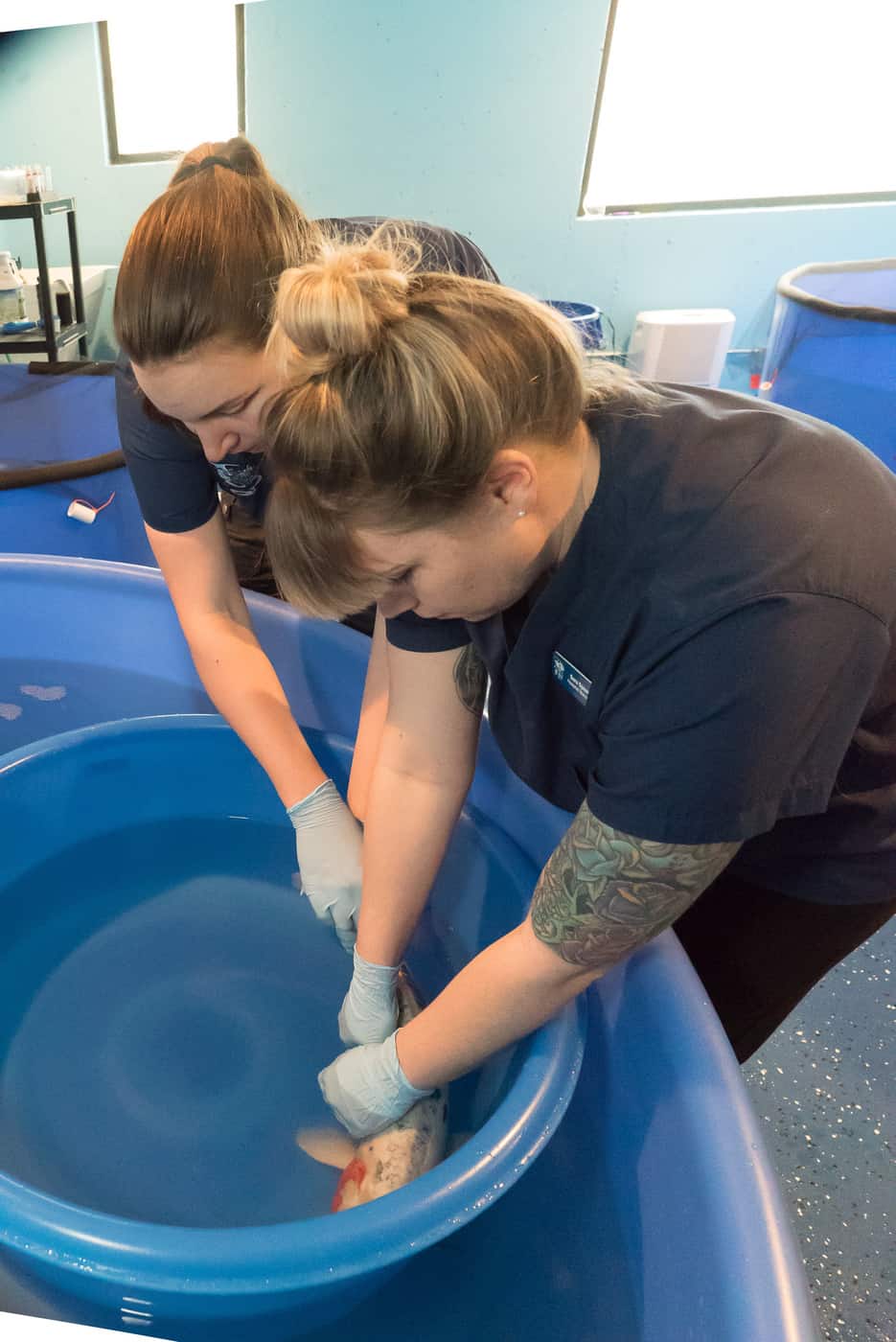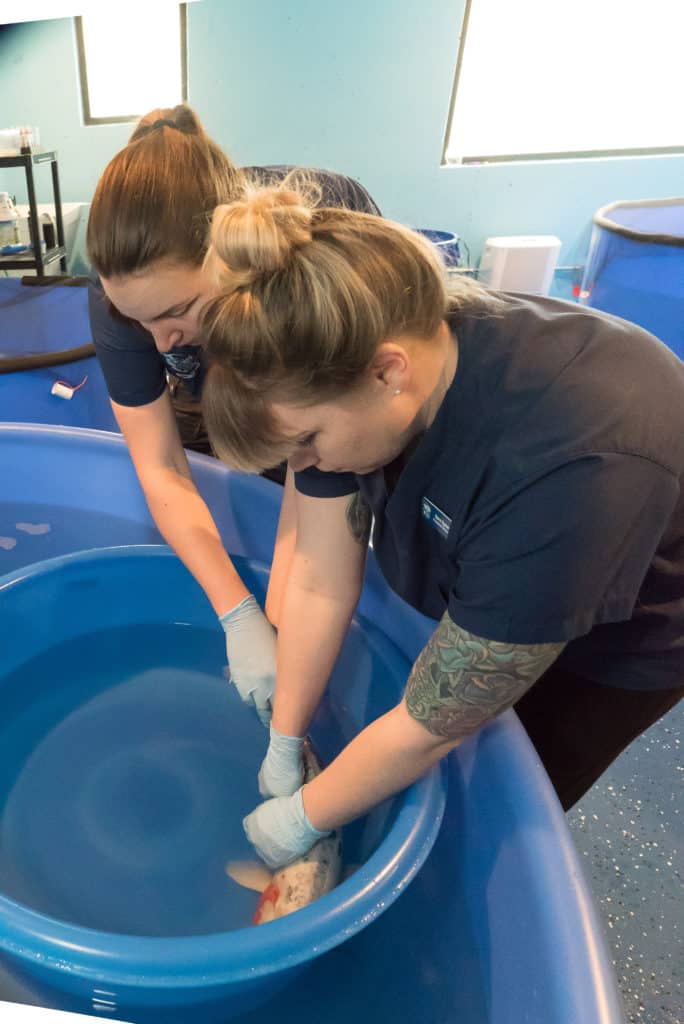 If you’ve ever read our other posts or watched our webinars, you may have noticed that we never tell you how to actually treat fish diseases. Although it’s one of the most common questions our staff is asked, treating disease is never as straightforward as a fish owner may think. As one of my colleagues put it recently, “I no longer treat disease; I treat systems.” When your fish gets sick, do you consider the individual or the entire aquatic environment?
If you’ve ever read our other posts or watched our webinars, you may have noticed that we never tell you how to actually treat fish diseases. Although it’s one of the most common questions our staff is asked, treating disease is never as straightforward as a fish owner may think. As one of my colleagues put it recently, “I no longer treat disease; I treat systems.” When your fish gets sick, do you consider the individual or the entire aquatic environment?
When comparing disease in a fish vs. a dog, your veterinarian will rarely ever ask, “what is the air quality in your house?” For fluffy pets, it is always assumed that they have suitable air to breathe. Veterinarians will rarely ever question this parameter unless you are talking about a fish. The watery environment in which a fish lives has a significantly increased impact than the air we breathe. (You’ve watched our water quality webinar, yes?) The increased density of water and the physiology of fish gill-water interaction can directly influence fish health. Fish live in a toilet, and there’s no avoiding that. Keeping your fish’s watery home within appropriate water quality parameters is the #1 thing you can do as a pet fish owner to keep your fish healthy.
And a big part of your fishes’ environment are the commensal bacteria living in your filtration. These magic beings don’t need any instructions or directions to do their part in keeping your fish healthy. By converting ammonia into its less toxic nitrate, they turn a watery death trap into a fish-safe home. However, any treatment you add to your tank, be it prescribed or over-the-counter, can affect those contributing bacteria. This is part of why treating disease in fish is very tricky. If you dump in a bunch of treatments that may or may not help your fish, you can wipe out all of the bacteria working in your favor. A lot of the over-the-counter medications are not validated by any third parties, and can do more harm than good.
Overall, treating diseases in any species is sometimes a straightforward process, provided that you can make the right diagnosis. Veterinarians train for years to make correct diagnoses and corresponding treatments. We are taught to be detectives and make sure to get the whole story rather than make assumptions based on simple physical appearances. Since aquatic medicine is an emerging field, many fish owners do not know that there are veterinarians who can help them. Asking Dr. Google a simple fish question can take owners down a rabbit hole of possibilities that very often lead them astray. Going to ask your local pet store can result in a bag full of home remedies that treat symptoms, not disease. Although there are many great fish stores and websites with loads of helpful information, knowing what is legitimate and woefully misleading can be hard to negotiate. By asking a veterinarian to assist you, you have a great guide to lead you to the right information and correct diagnosis, leading to treating your fish correctly the first time.
Find a fish veterinarian to assist you:
American Association of Fish Veterinarians
World Aquatic Veterinary Medical Association


Pingback: Fish Immune Function – Aquatic Veterinary Services